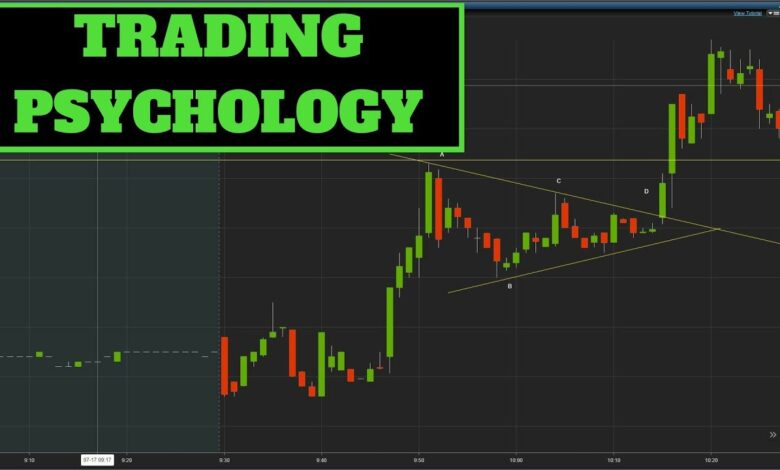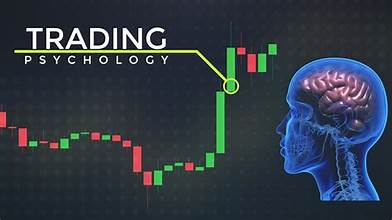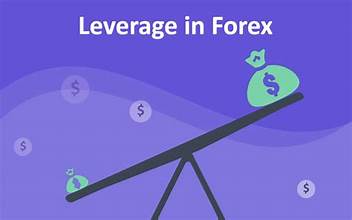
In trading, you may be trading stocks, forex, cryptocurrencies, or commodities, but success depends upon more than technical analysis and market trends. Probably most traders ignore the critical role of psychology in trading. Trading psychology encompasses decision-making, taking of risks, and responses in the market. In this article, we are going to speak about the importance of the understanding of trading psychology and the impact of fear and greed and also why a strong mindset in trading can eventually lead towards consistent profitability in financial markets.

What is Trading Psychology?
Trading psychology would be the emotions and mental factors that would affect a trader’s behavior during the trading process. It is also different from long-term investments, where usually there is more time before making decisions. In trading, decisions are more hasty, volatile, and stressful. Controlling your emotions and possessing self-discipline can affect the outcome of the trade.
Traders are often influenced by psychological factors that may include acting impulsively, overconfidence after a win, or anxiety after a loss. The emotions may blur judgment and result in poor decision-making and excessive risk-taking. The psychology of trading enables the traders to improve their decision-making process, reduce errors, and build a mindset supporting long-term success.
Role of Emotions in Trading
Trading naturally brings in emotions that cannot be removed entirely. Thus, one has to know the way those emotions of fear, greed, overconfidence, and euphoria make them affect the trading strategies.
- Fear of Loss
The greatest fear threatening the traders is losing money. This type of fear will force a trader to close his position earlier than it ought to, even when it is seeming to move in his favor. It also creates risk aversion, where the trader becomes cautious and afraid of positions that have potential huge returns.
Fear can also arise after several losses, causing hesitation and second-guessing. This fear-based approach often leads to undertrading or missed opportunities, both of which can impede a trader’s overall performance.
- Greed and Overconfidence
Greed is the other extreme of the spectrum of emotions and usually follows a streak of profitable trades. Once someone has been successful, they begin to feel overconfident, believing that they can continue making high-risk trades and keep winning.
Overconfidence breeds unnecessary risk taking and ignorance of stop-loss orders as well as overleveraging positions. Greed tends to make judgment in a trader even worse so that it may encourage more chances for chasing fast profits than staying within an engineered system. It could finally blow the roof out for gains achieved beforehand.
- Euphoria and Confirmation Bias
After a series of successful trades, euphoria is reached by traders, and they feel invincible, as if their predictions are always correct. This emotional state can lead to confirmation bias, where traders only focus on information that supports their views while ignoring contrary evidence.
Euphoria can blur the objectivity and make a trader over expose himself to risky positions. This emotional bias blurs the decision-making and the traders end up aborting well-crafted strategies for impulsive trading.
- Regret and Loss Aversion
Another psychological factor that affects trading is loss aversion, which is a fear of losses more than a valuation of equivalent gains. A trader, having incurred a loss, tends to get into revenge trades in order to regain money lost. This reaction tends to result in greater losses and poor decision-making.
It is as widespread as it is when the traders miss some opportunity or make a wrong move. It results in FOMO syndrome that forces the traders to get into trading without any appropriate analysis or proper strategy. In this way, both regret and loss aversion result in erratic trading behavior, which has an adverse impact on profitability.

Trading Psychology Management Strategies
This helps to ensure that someone remains consistent and disciplined in the markets. The following are some critical strategies that can be used to enhance the mental and emotional approach to trading:
- Develop a Trading Plan
The core for reducing emotional decision-making is a sound trading plan. A good thought-out plan includes entry and exit strategies, rules for risk management, and clear guidelines on position sizing. By following a structured plan, traders can avoid impulsive decisions and stop acting on emotions such as greed or fear.
This will engage some precise goals like a target profit and a threshold on loss tolerance. Ruling out certain possibilities, the traders might limit themselves from deviations along any emotional path away from strategy.
- Managing risk
Effective risk management helps control emotional reactions towards losses and the fear of loss. Among the most prevalent rules on trading is to risk only a small percentage of the overall capital on a trade, usually no greater than 1-2%. In this manner, even if a succession of losses is destined to eventually happen, it will not critically harm the overall trading account.
Besides the take-profit levels, there is setting and use of stop-loss orders to keep discipline in risk management and eradicate the emotional reaction to volatile markets.
- Mindfulness And Self-Control:
Traders can effectively tackle stress and anxiety using the techniques of mindfulness and emotional awareness. Such knowledge as having moments where you experience feeling fear, greed, or other emotions that move you into being able to take a step back to reassess one’s action is highly desirable. Deep breathing and mediation are excellent mindfulness techniques.
This awareness of what are your emotional triggers will allow you to stay as objective as possible. If you can sense this emotional takeover, then one might consider taking some steps away from the screen and cleaning the head before any other major trading decisions are being made.
- Have a Trading Journal
A trading journal is very helpful in coming to terms with the psychological reasons behind entering trades. Every trade entered, and the reason behind it and why the trade was exited, and which emotions were involved during the execution of that trade, should be kept in detail for traders to come to certain patterns of their behavior.
This self-reflection will give the trader a time of knowing when he or she is trading emotionally instead of on a plan. Over time, it helps identify emotional biases in trading, improves the strategy of trading, and enhances the mindset.
- Accept Losses as Part of the Process
A trader can’t win all the time. This is a fact and knowing that losses are part of trading is essential for the emotional resilience of a trader. The acceptance of losses, or viewing them as opportunities for learning rather than failures, helps reduce the emotional burden of trading. Instead of trying to avoid losses, manage them effectively and make sure that the overall strategy remains profitable over the long term.

Importance of Psychological Resilience in Trading
Psychological resilience refers to the ability to recover from setbacks, control emotions, and stay focused in the face of adversity. Psychological resilience is important for trading in the long run because it keeps traders disciplined and focused on their plans and allows them to make decisions based on logic rather than emotion.
Successful traders know that trading psychology is not something to be ignored. Such people are self-controlled in their emotions, build resilience, and are working continuously on self-improvement. By adopting the challenges in the mind of a trader for the psychological task, success can be brought in probabilities of profitability for a considerable amount of time by such an approach in trading financial markets.




